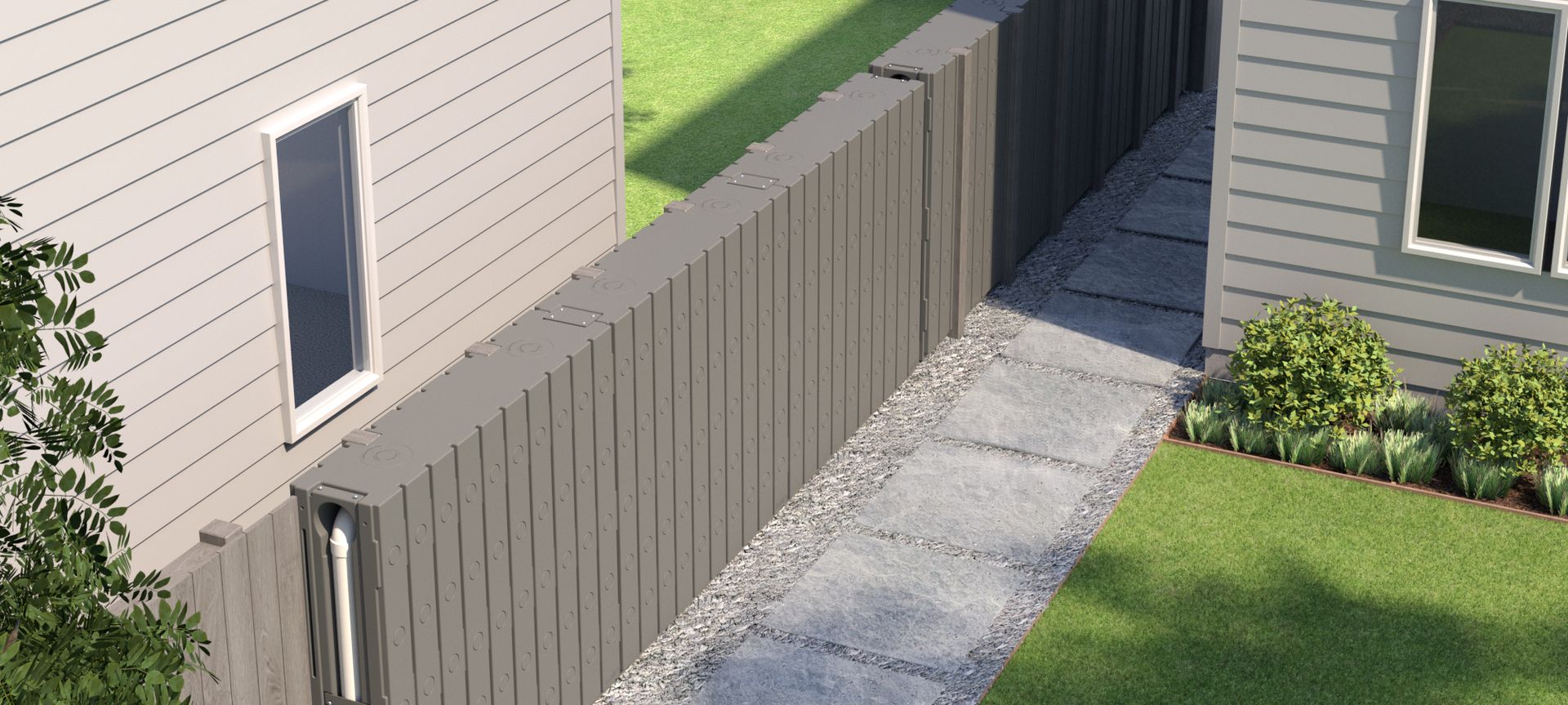It's official: water tanks are 'very unlikely' to burst into flames

The determination, announced on March 28, was sought in July 2022 by the housing agency's dedicated consenting consultancy, Consentium, was in reference to a new, two-storey detached dwelling and whether an above-ground stormwater tank near the property boundary complied with C3.6 and C3.7 of Clause C3 of the Building Act.
At the time, Consentium, as the authority, held the view the stormwater tank didn't comply with part of the Building Code concerned with limiting the spread of fire between properties.
The application was accordingly changed to specify a metal tank to replace the 2.95-metre-long plastic tank supplied by Thin Tanks.
The regulator duly entered into a year-and-a-half of discussions, consultation, independent fire reviews and deliberations.
Peta Hird, MBIE's principal adviser of determinations, eventually found that it is "very unlikely a fire could occur in the tank given that the plastic tank would contain water and air".
Hird further decided that clause C3.6 "wasn't applicable" to the tank, which in this case holds 5,000 litres of water, given that it doesn't have "external walls", as defined by the clause.
Red tape gone mad
Andrew Olsen, co-founder of Watersmart, which supplies the FenceTank range of tanks, similar to the external tank under discussion, said it was a "victory for common sense".
"These tanks are designed to hold water or air. So it's a relief to finally see that MBIE agrees. I was worried that the red tape had gone mad," he said.
Auckland building consultant Louise Swann said the consenting authority's initial interpretation that the full or empty plastic water tank could represent a fire risk was "plainly ridiculous". Yet MBIE held the position that it could only provide clarity if an application for a determination was made.
Dysfunctional and costly
MBIE itself has come under increasing scrutiny for failing in its role to improve the quality and safety of buildings by ensuring fit-for-purpose residential and commercial buildings are built.
At issue for builders is that the 67 consenting authorities can interpret building rules as they wish, creating what in the eyes of the industry is a dysfunctional, time-consuming and expensive process.
MBIE has argued it doesn't hold responsibility for issuing consents, but rather overseeing the scheme that accredits the authorities to do the job.
Build delays
Consenting authorities and industry players disagree. A 2022 review of the building consent system threw up a host of issues, with almost all of the 264 submissions suggesting the system isn't agile enough across design and procurement and that significant concerns remained about variations and production substitutions.
Registered Master Builders submitted that more than half of its members had experienced delays of more than five weeks for consenting issues, adding significantly to average build times of between six and nine months and pushing prices up by as much as a fifth.
Article by: Brent Melville - BusinessDesk
If you would like to discuss anything in this article or understand more about Watersmart's FenceTank range linked here.
Please get in contact here or by phone on : 0800 11 08 08, email: hello@watersmart.co.nz, or fill in the form below if you’d like to know more about how we can help.
